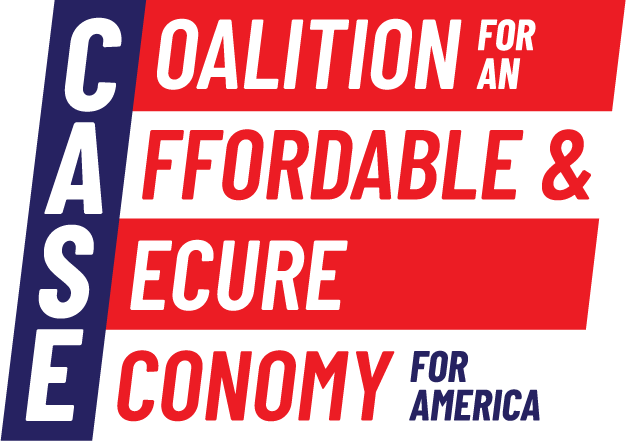Republican Heavyweights Sound Off On Potential Economic Harm
As the dust settles on the Trump Administration’s unprecedented tariff announcement, key Republicans in Washington are growing increasingly uneasy
The move has shaken the stock market and prompted U.S. Federal Reserve Chair Jerome Powell to caution that tariff-driven inflation may not be temporary. Goldman Sachs increased the probability of a recession from 20% to 45%. According to the Tax Foundation, the tariffs could amount to a $2,100 tax hike per household in 2025 alone.
In response, many Republican Members of Congress and business leaders are speaking out and taking action.
In the House, U.S. Representative Don Bacon of Nebraska discussed his companion bill to the newly-introduced Senate Trade Review Act during an appearance on Face the Nation. The Senate version, introduced last week by Iowa Senator Chuck Grassley – chair of the Committee on the Judiciary and a member of the Committee on Finance – aims to reassert congressional authority over trade policy. Seven Senate Republicans have signed on as co-sponsors of the bill.

Bacon emphasized the constitutional basis for the legislation, stating, “The Constitution is clear – in the House and the Senate, Congress has the power of tariffs and taxes and we gave some of that power to the executive branch. I think, in hindsight, that was a mistake.”
Meanwhile, in the Senate, a bipartisan group of lawmakers came together to adopt a resolution blocking President Trump’s use of the International Emergency Economic Powers Act, sending a strong message that Canada is a vital ally and trade partner, and U.S. economic stability must remain a priority.
In a FOX News op-ed, Senator Rand Paul cautioned that “tariffs aren’t just harmful to American families and the national economy – they also hurt Republicans. The reality is, tariffs are simply taxes. They don’t penalize foreign governments; they penalize American families.”
And as reported by The Wall Street Journal, Senator Ted Cruz warned, “If we’re in a scenario 30, 60 or 90 days from now with massive American tariffs and massive tariffs on American goods from every other country on Earth, that is a terrible outcome … This is the biggest tax increase we’ve seen in a long, long time … If we go into a recession – particularly a bad recession – 2026, in all likelihood, would be a political bloodbath.”
The Washington Post reported in a story headlined, “Team Trump defends tariffs as bipartisan opposition grows, markets slide,” that “Ben Shapiro, the right-wing pundit and co-founder of the Daily Wire, called the tariffs ‘probably unconstitutional’ and illogical, and the Wall Street Journal’s editorial board, as well as guests on Fox News, have criticized the levies.”
On the business side, Bill Ackman, a staunch supporter of President Trump’s candidacy, warned that the world is on the brink of a “self-induced economic nuclear winter.”
To top it all off, Elon Musk, head of the Department of Government Efficiency (DOGE), sparred online with Peter Navarro, President Trump’s senior counselor of trade and manufacturing. Musk said on X, “A PhD in Econ from Harvard is a bad thing, not a good thing. Results in the ego/brains>>1 problem.”
There’s no doubt that Americans remain worried about the high costs of everyday household goods and are skeptical of the proposed tariffs.
A recent Wall Street Journal poll showed that concerns about rising costs are growing, with 75% of voters believing tariffs will increase the prices of everyday items, a jump from 68% in January.
A CBS poll found most believe President Trump has focused too much on tariffs – which they say will raise prices – and not enough on lowering costs. Just one-quarter feel financially better off under his policies, while nearly twice as many say they’re worse off.
A Reuters/Ipsos poll echoed these concerns, with only 30% approving of President Trump’s handling of the cost of living and more than half saying new tariffs would do more harm than good.
A Morning Consult/National Retail Federation poll found that voters fear the 2025 tariffs will hit vulnerable groups like small businesses and working families the hardest. Large majorities worry prices will rise on essentials, such as groceries, medicine and clothing. Three-quarters of voters say the government’s top priority should be tackling inflation – not cutting the trade deficit.
With widespread apprehension about rising costs and an economic recession coming if all tariffs take effect as announced, sweeping tariffs are threatening to cause significant harm to middle-class families. Policymakers must focus on what voters elected them to do: addressing inflation and reducing costs to make daily life more affordable.

